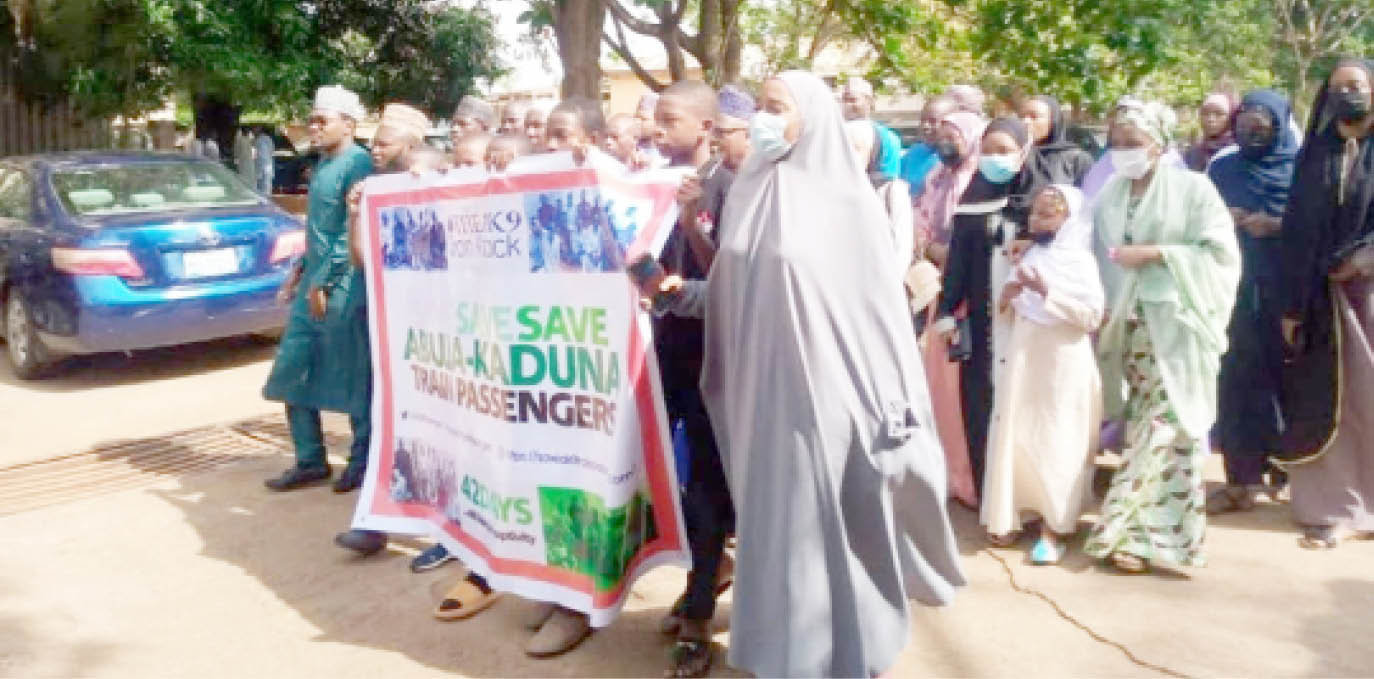In Kaduna, many residents are elated over the news of the planned resumption of the Abuja-Kaduna train service.
Our correspondent, however, gathered that although many are excited, many others are worried about the safety of the train and are entertaining fear.
- Women, meritocracy and the political paradigm shift
- Border reopening: Abiodun warns against illicit activities
Some residents who spoke to our correspondent said it was better to patronise the train service when it returns, claiming that when the train is back, the security attention being given to the Abuja-Kaduna highway would be withdrawn, which would make the road unsafe again.
Dr Abdulmalik Atta, whose 85-year-old mother and sister are among the 62 victims of the Abuja-Kaduna train attack, said he would break down whenever he sees his mother’s picture among the victims.
He solicited prayers from Nigerians for the safe return of the victims.
“We are actually concerned over moves by the federal government to resume the Abuja-Kaduna train services, especially because our loved ones are still in captivity. But we know the government has stepped up activities to rescue them and we appreciate their efforts,” he said.
Hannatu Mohammed, a civil servant who resides in Kaduna but works in Abuja said, “I am relieved and cannot wait for the return of the train service because these few months have not been easy for me and my family.

“I sympathise with the victims and their families, but other Nigerians have also been risking their lives plying the Abuja-Kaduna highway, which has been witnessing a series of attacks for many years.”
She said the return of the train would do more good than harm, and urged the government to expedite action and ensure its timely return.
Also, Hannatu Clara Yakubu, a resident of Barnawa in Kaduna South Local Government Area, said though she spent a lot of money to get to the train station in Rigasa and back, it is safer than plying the highway.
She said, “These months have been a battle for me. At one point, I was tempted to leave my job in Abuja because of the level of insecurity on the road. I was forced to relocate to Abuja since the incident happened until I was convinced that security had been re-enforced on the road.”
She described the return of the train as a welcome development and prayed for the release of the victims.
She appealed to the government to intensify security on the train service in order to forestall a repeat of the incident.
But Sadiq Ibrahim has a different opinion about the news of the return of the train service. He said, “I am not a fan of the train service. I see it as a waste of time and resources for passengers because the money and time used to get to the train station is not worth it. I have always plied the highway; and I go to Abuja on a monthly basis.”
He is of the opinion that destiny plays a very important role in a person’s life. According to him, once one is destined to be kidnapped, one cannot escape it. “What we need is to be praying,” he said.
Meanwhile, the Managing Director of the Nigerian Railway Corporation (NRC), Fidet Okhiria, an engineer, told our correspondent on phone that additional security measures would be deployed ahead of the planned reopening of the railway.
He said the Abuja-Kaduna train service would only resume with additional security measures that would guarantee the safety of lives and property. He, however, added that the exact resumption date had not been fixed.
He also reiterated that passengers would be required to provide their National Identity Number (NIN) registration for verification prior to purchasing train tickets. This is for improved passenger profiling and safety onboard, he added.
He also said the NRC was requesting soldiers to provide escort on the train, in addition to policemen that would be deployed to provide security.
The NRC had previously announced that locals around the train corridor would also be profiled by the Department of State Services (DSS) and engaged to provide discreet surveillance services on the train route when the service resumes.
Some previous users of the train service who spoke to our correspondent expressed mixed feelings over the planned resumption. While some of them are excited that the trains will resume operation, others are not so excited and might not be using the train anytime soon.
Mr Innocent Adikwu, who uses the train from time to time, said he would use the train if there’s reinforced security.
“I think the terrorists might not return to the train anytime soon. I think what they wanted was a scare effect, and if possible, ground the service completely. But if the federal government can resume the train operations, it will be a major win because the terrorists must not be allowed to think that they have won.
“I understand the fears and apprehension, but are we going to surrender our national assets to terrorists? If that was to be the case, we would have shut down the Abuja-Kaduna Highway. Perhaps the United Nations (UN) would have shut down their building following the bomb that rocked the facility several years back.
“What is important is reviewing the security architecture and investing in intelligence and surveillance, but above all, the security agencies and government must have the balls to act on intelligence immediately,” he said.
Another user of the train, Mr Ibrahim Audu, also said he would patronise it once it is back.
But Yusuf Alhaji said he would not use the train anytime soon, no matter the assurances of security.
“I will rather travel by road if I must go to Kaduna. It will take a long while before I use the train again,” he said.

 Join Daily Trust WhatsApp Community For Quick Access To News and Happenings Around You.
Join Daily Trust WhatsApp Community For Quick Access To News and Happenings Around You.

